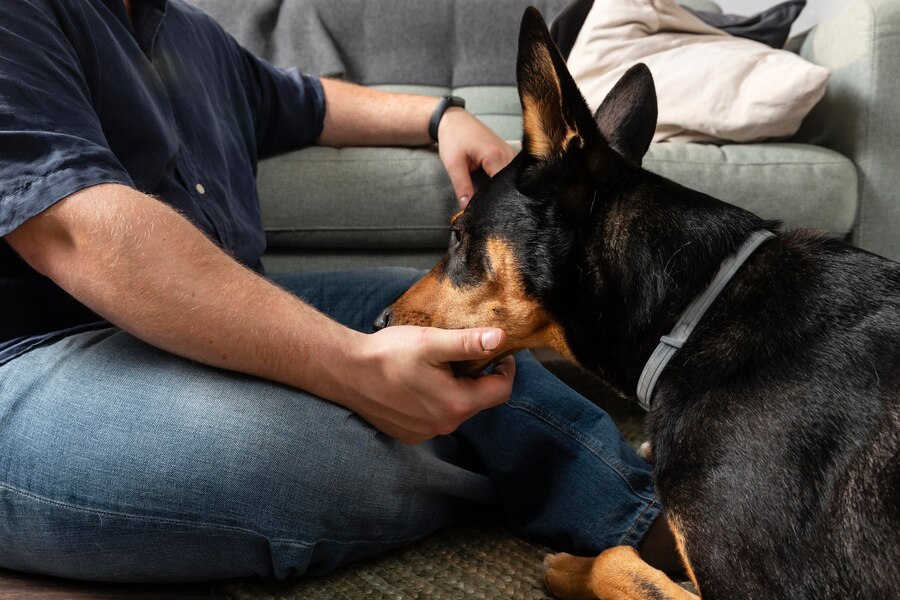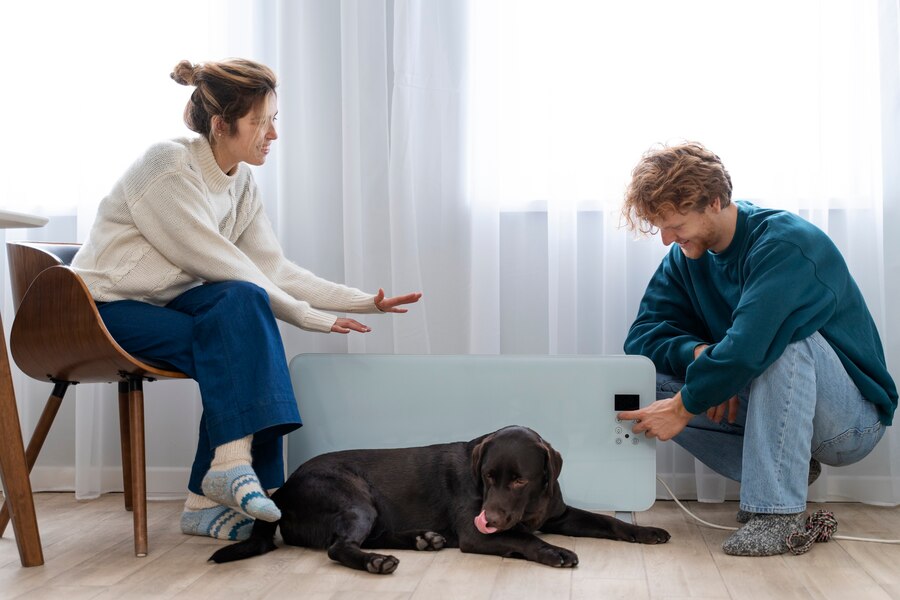Dog-friendly rehab centers offer a unique and supportive environment for individuals seeking recovery from substance abuse. These facilities recognize the deep bond between humans and their canine companions and understand how this relationship can play a crucial role in the healing process. In Southern California, where a love for pets is widespread, dog-friendly rehabs provide a compassionate approach to treatment, allowing individuals to embark on their recovery journey without having to leave their beloved pets behind. This not only reduces the stress of separation but also leverages the therapeutic benefits that dogs can bring to the recovery process.
Incorporating dogs into rehab programs can significantly enhance the emotional well-being of individuals, offering comfort, companionship, and a sense of responsibility. The presence of a dog can help create a more relaxed and positive environment, making the challenging process of recovery more manageable and less daunting.
Reach Out with Us (888-325-2454)
The Role of Dogs in the Recovery Process
Dogs play a multifaceted role in the recovery process, offering unconditional love, companionship, and emotional support. Their presence can help reduce feelings of loneliness and isolation, which are common during addiction treatment. The routine care of a dog also provides structure, encouraging individuals to establish a sense of normalcy and responsibility that can be vital for long-term recovery.
Moreover, the non-judgmental nature of dogs allows individuals to express their emotions freely, aiding in the release of pent-up feelings and stress. This emotional outlet can be incredibly therapeutic, fostering a sense of calm and stability during the often tumultuous journey of recovery.
Benefits of Choosing a Dog-Friendly Rehab Facility
Choosing a dog-friendly rehab facility comes with numerous benefits that can positively impact the recovery process. Firstly, it eliminates the worry of finding temporary care for your dog, allowing you to focus entirely on your treatment. Secondly, having your dog by your side can provide a consistent source of comfort and motivation, helping you stay committed to your recovery goals.
In addition, dogs can help ease the transition into rehab by providing a familiar and comforting presence in an unfamiliar environment. Their companionship can reduce anxiety, promote relaxation, and even improve sleep, all of which are crucial for successful rehabilitation.
Understanding the Connection Between Pets and Emotional Healing
The connection between pets and emotional healing is well-documented, with studies showing that interaction with animals can lower stress levels, reduce anxiety, and improve overall mood. For individuals in recovery, this connection can be particularly beneficial as it offers a natural way to cope with the emotional challenges that arise during treatment.
Dogs, in particular, are known for their intuitive ability to sense their owner’s emotional state and provide comfort accordingly. This emotional support can help individuals navigate the ups and downs of recovery, making them feel more secure and less alone.
Evaluating Dog-Friendly Rehab Centers in Southern California
When evaluating dog-friendly rehab centers in Southern California, it’s important to consider several factors to ensure that both you and your dog will receive the best possible care. Look for facilities that have specific policies and accommodations for pets, including designated pet-friendly areas, access to outdoor spaces, and professional staff trained to handle pets.
Additionally, consider the center’s overall approach to treatment and how well it integrates pet therapy into its programs. A facility that recognizes the therapeutic value of pets and actively incorporates them into the recovery process is likely to provide a more holistic and supportive environment for healing.
Pet Therapy Programs in Dog-Friendly Rehabs
Pet therapy programs are a key feature of many dog-friendly rehab centers, offering structured activities that involve interaction with dogs as part of the therapeutic process. These programs can include guided pet therapy sessions, where individuals engage with trained therapy dogs to help reduce stress, improve emotional regulation, and build trust.
In some cases, individuals can also participate in activities that involve training or caring for their own dogs, which can enhance their sense of purpose and boost self-esteem. The inclusion of pet therapy in rehab programs provides an additional layer of support, helping individuals connect with their emotions in a positive and constructive way.
Creating a Recovery Plan that Includes Your Dog
Creating a recovery plan that includes your dog requires careful consideration of both your needs and the needs of your pet. Work with the rehab center’s staff to develop a plan that incorporates time for pet care, exercise, and bonding, while also allowing you to fully participate in your treatment program.
Your recovery plan should also address any potential challenges that may arise from having your dog with you, such as managing your pet’s behavior in a new environment or ensuring that their presence does not interfere with your treatment. By planning ahead and setting realistic expectations, you can create a balanced approach that supports both your recovery and your pet’s well-being.

Integrating Your Dog into Group Therapy Sessions
Integrating your dog into group therapy sessions can be a valuable way to enhance the therapeutic experience. Dogs can help create a more relaxed and open atmosphere, making it easier for participants to share their thoughts and feelings. Additionally, the presence of a dog can provide comfort and emotional support during potentially intense discussions.
If your rehab facility offers the option, consider bringing your dog to group therapy sessions where appropriate. This can help you feel more grounded and connected, while also providing a source of comfort to others in the group.
How Dogs Support Emotional and Mental Well-Being
Dogs support emotional and mental well-being in numerous ways, from reducing and anxiety to providing a sense of purpose and companionship. Their unconditional love and loyalty can help individuals feel valued and understood, which is particularly important during the recovery process.
The routine of caring for a dog can also promote a healthier lifestyle, encouraging regular exercise, outdoor activities, and social interaction. These benefits contribute to overall mental well-being and can play a significant role in sustaining long-term recovery.
How Dog Companionship Reduces Stress and Anxiety
Dog companionship is known to reduce stress and anxiety through physical touch, play, and simple presence. The act of petting a dog can trigger the release of endorphins, which are natural stress relievers. Additionally, spending time with a dog can distract from negative thoughts and provide a sense of calm.
In a rehab setting, where stress and anxiety are common, having a dog by your side can make a significant difference in how you cope with these feelings. The consistent support of a dog can help you stay focused on your recovery goals while providing a comforting presence during challenging times.
Safety and Comfort: Ensuring Your Dog’s Well-Being
Ensuring your dog’s well-being in a rehab environment involves understanding the facility’s safety measures and accommodations for pets. This includes secure outdoor areas, proper supervision, and access to veterinary care if needed. It’s also important to ensure that your dog will be comfortable in the new environment and that any potential stressors, such as interactions with other animals or changes in routine, are managed appropriately.
Choose a facility that prioritizes the safety and comfort of pets and offers a supportive environment for both you and your dog. This will help ensure a positive experience and allow you to focus fully on your recovery.
Tips for Preparing Your Dog for Rehab
Preparing your dog for rehab involves both practical and emotional considerations. Make sure your dog is up-to-date on vaccinations and has any necessary medications or special food items. It’s also helpful to bring familiar items from home, such as your dog’s bed or favorite toys, to help them feel more comfortable in the new environment.
Emotionally, try to maintain a calm and positive attitude during the transition, as dogs are highly sensitive to their owner’s emotions. Gradually introduce your dog to the new environment, allowing them time to adjust at their own pace.
Embracing Recovery with Your Canine Companion in Southern California
Embracing recovery with your canine companion in Southern California offers a unique and supportive approach to healing. Dog-friendly rehab centers provide the perfect environment for individuals who want to maintain the bond with their pets while focusing on their recovery. By choosing the right facility, integrating your dog into your recovery plan, and ensuring both your and your pet’s well-being, you can create a positive and fulfilling rehabilitation experience. If you’re considering a dog-friendly rehab in Southern California, reach out to Pet Friendly Rehab today to explore your options and start your journey to recovery with your loyal companion by your side.




